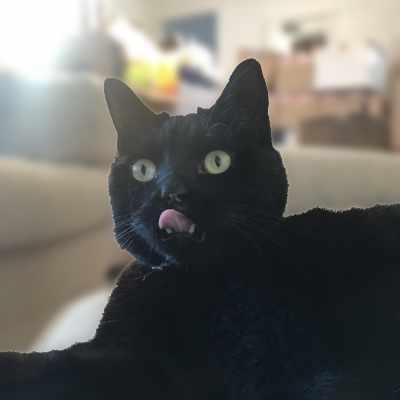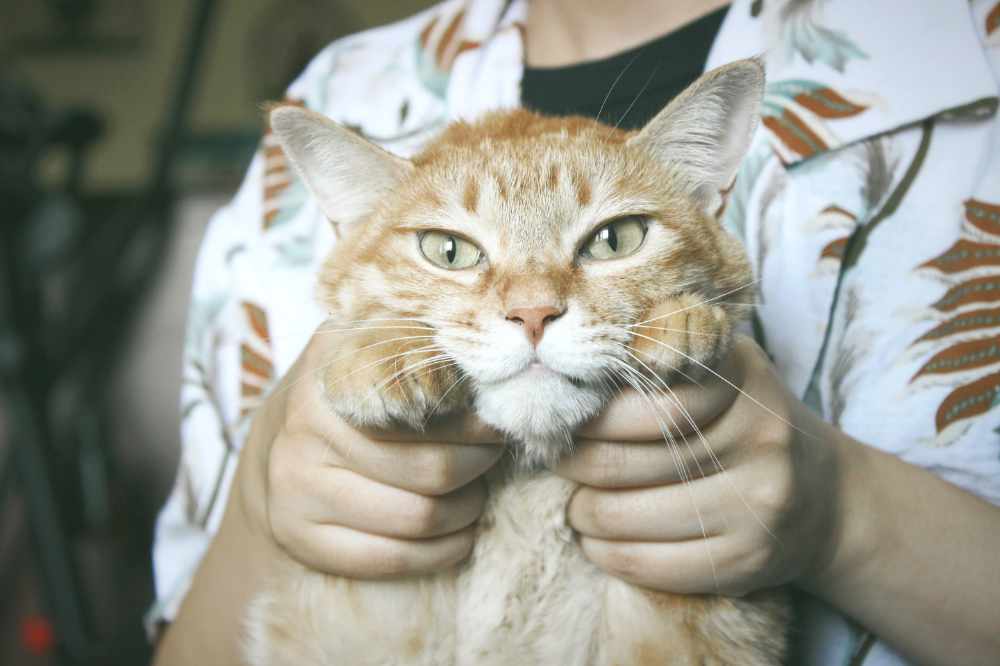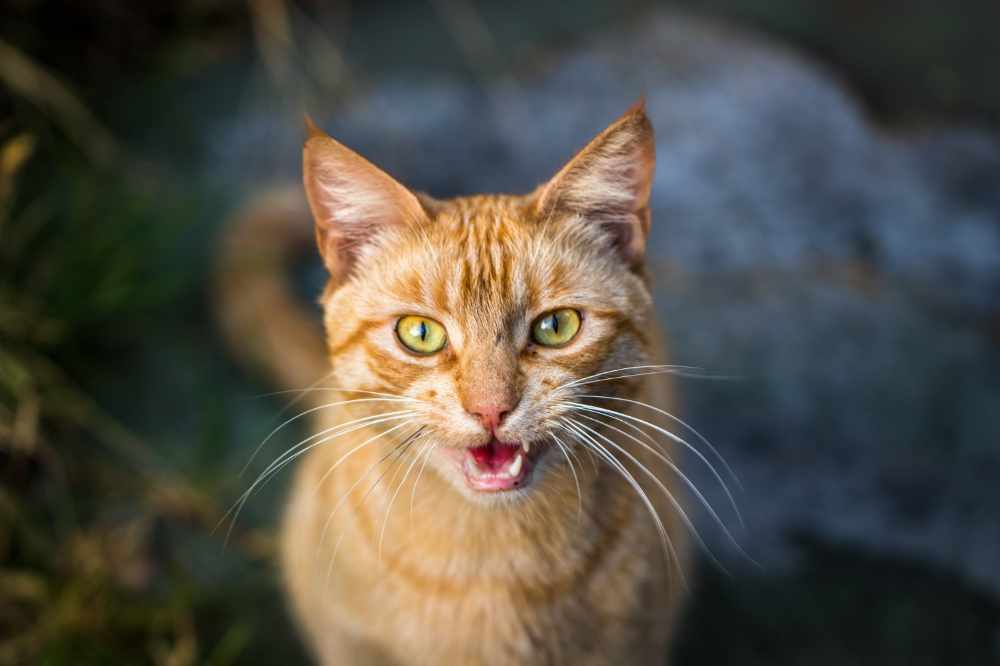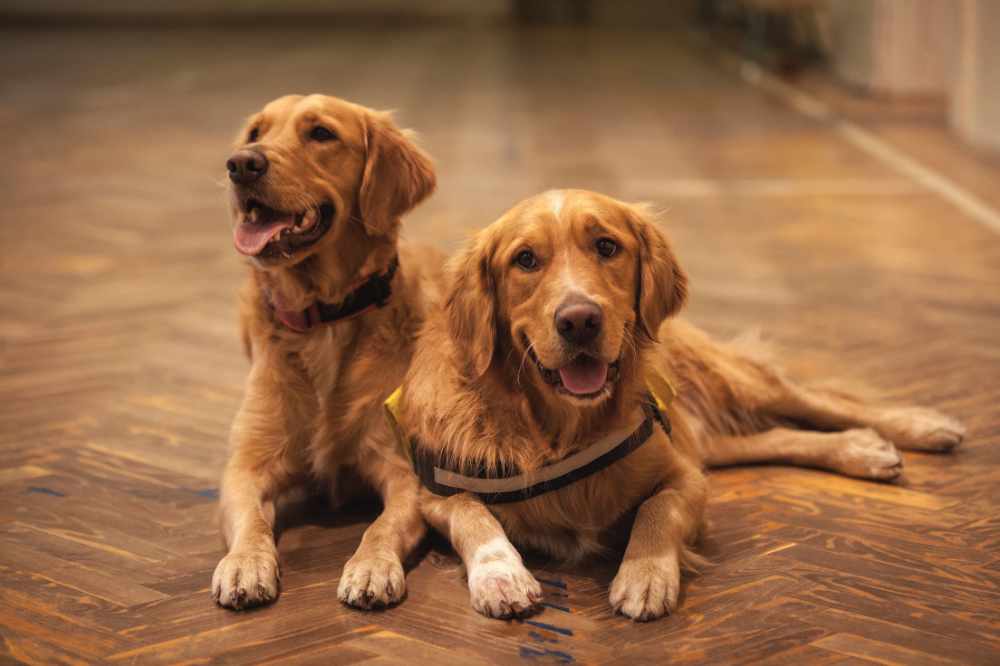It’s normal to love your pet cat more than life itself. With their purrfect little fussy head, their cute squishy toe beans and their enchanting little purr, there is nothing at all to dislike. It can be easy to fall into a false sense of security that your cat is an angel of perfection and nothing they do could ever cause you any harm.
The unfortunate truth is, your cat can unwittingly make you sick with one simple innocent act. A cat’s mouth is a little factory of infection and if you consume anything that mouth has touched then you can end up unwell. This is especially true for the very old, young or immunocompromised. If you’ve ever found yourself asking thinking “My cat licked my food, can I eat it?” then here’s the answer.
Absolutely not. If your cat has licked your plate, food or eating/cooking utensil then there are all kinds of nasty things they could have unwittingly introduced to your food. It’s best to avoid sharing their leftovers and thoroughly clean any objects they have licked.
That’s the quick summary, for those who have more questions here’s the rest. There are a lot of reasons why your cat should not be sharing your dinner and it’s all down to where their mouth may have been previously. Here’s a deep dive into all the things cats love to lick and why these do not mix so well with your dinner.
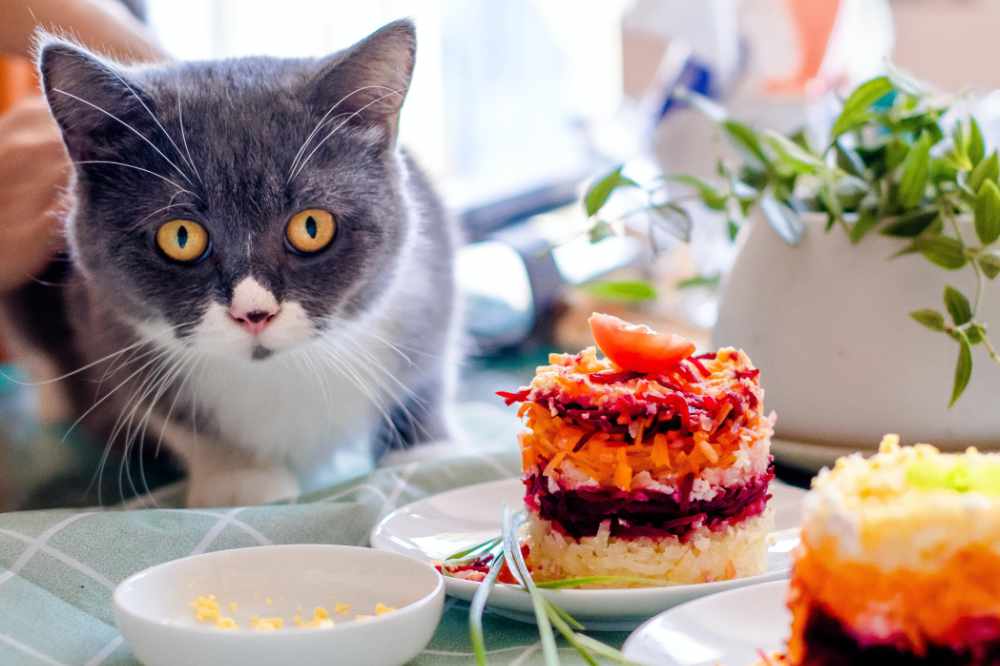
Cat Saliva. What Is The Concern?
Saliva is the stringy fluid that keeps our mouths moist and helps to digest our food. It contains enzymes that start breaking down your mouthful of grub before it’s even swallowed. It helps lubricate everything so your food can easily slide down your throat.
Your cat’s saliva does exactly the same job for your feline friend with some added benefits. Cats use their saliva to help clean their coat as well as using it to cool down on a hot summer’s day.
Saliva itself isn’t harmful but it can create a breeding ground for bacteria and can act as a medium to spread viruses. When you consider what’s been in your cat’s mouth then you can start to appreciate why their saliva may not be the cleanest.
1. Cats Clean Their Fur and Paws
Cats use their tongue to clean themselves and will take their time licking their fur. Dust, dirt and grime from the day all end up in their mouth and will come into contact with anything else they decide to lick.
If you’ve ever seen a cat clean its paws you will notice how carefully they lick in between each toe, stopping to chew on each toenail. It’s kinda gross but it gets the job done. The downside is, everything that those little paws have stepped on ultimately will come into contact with your cat’s mouth including any dirt that’s nestled in behind their claws.
Cats are not known for their handwashing habits so if you see your cat licking your food it’s best to avoid following their example.
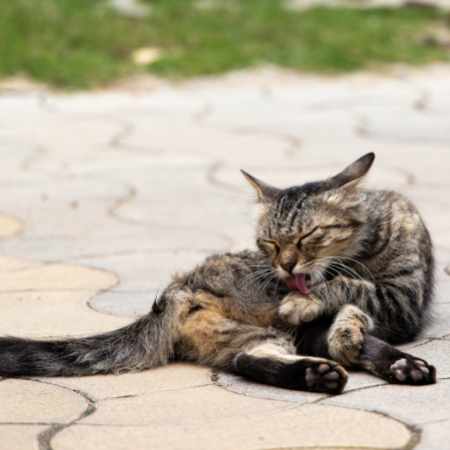
2. Your Cat Licks Its Butthole
It gets even worse than cheesy toenails. Your cat doesn’t use toilet paper to clean their rear end after visiting the litter box, they have a tongue to fulfil this job for them. As unpleasant as it is, your cat isn’t too fussed about getting down and dirty with their tongue and sticking it where the sun doesn’t shine.
Any poop that remains on your cat’s rear end will be licked off in no time at all and this will end up in contact with anything else your cat chooses to place its tongue on. Cat poop can contain harmful bacteria and parasites so always consider where their tongue has been, there will be traces of poop remaining.
3. Raw Food
If your cat is on a raw food diet then this can be a concern when they come to lick anything else. It’s common knowledge that raw meat can contain harmful bacteria and these bacteria can make us seriously unwell. Cats have very acidic stomachs which often kill these bacteria (although not always – your cat can still get unwell from spoiled food!) but their mouths can harbor these germs.
Even if you don’t feed raw food to your cat they can still source this out and about by eating dead animals, scavenging in bins, or scrouging off other people.
Always bear in mind that your cat may have just been chomping on something less than ideal before they lick your food.
4. Cats Catch and Eat Wild Animals
Your pet cat has hunting instincts wired in from before they are born. Whilst some individuals take to the role better than others it’s still an important consideration when you’re weighing up how clean that mouth is.
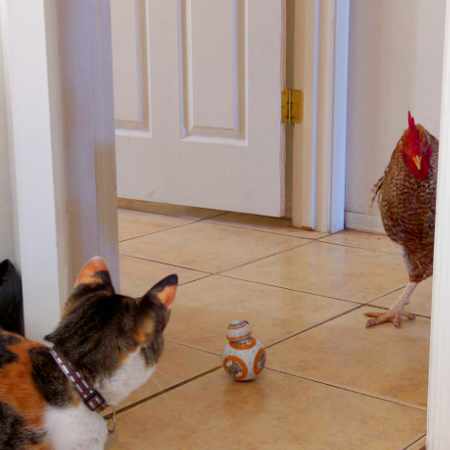
If your cat catches and devours a mouse or bird then they are eating every part of that animal, including any germs or parasites that may have hitched a ride. These morsels are not cleaned or cooked before they are consumed so anything nasty in there has a chance of remaining in your cat’s mouth.
It’s always worth considering that it’s not just your cat’s regular food that can end up tainting their saliva but any dietary supplement they choose can be a cause for concern. If in doubt, keep your food covered and away from temptation.
5. Cats May Fight With Other Cats/Species
Cats can be very territorial and if another cat enters their space then they will be quick to defend it. This can lead to a physical conflict involving teeth and claws. Cats can and will fight dirty and their mouths can end up coming into contact with their opponent and can even draw blood.
It’s not just other cats they can end up in altercations with. Cats can end up fighting with other species for any number of reasons and this can undoubtedly cause them to expose their mouths to all kinds of nasty bugs.
6. Cats Will Drink From Dirty Puddles
It’s a common story among cat owners that it can be a nightmare to try and encourage your cat to drink their clean, fresh water at home but the minute they find a nasty, slimy puddle they are right in there to have a sip.
Some cats seem to enjoy a variety when it comes to their hydration and the grosser the puddle is, the better. There are lots of bacteria and other nasty things that like to lurk in puddles and your cat can easily transfer these onto your food with a simple lick.
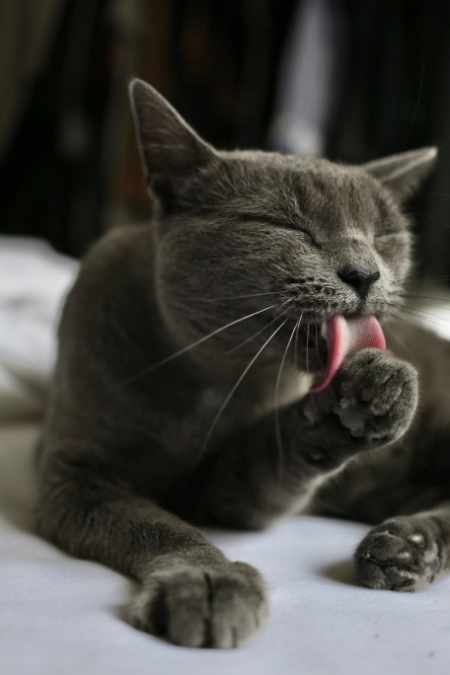
7. Cats Will Lick Wounds
It’s a common myth that a cat will lick its wounds as a natural healing aid. Whilst saliva may have some minor benefits to help reduce infection, unfortunately, the chances are it will most likely make the wound worse. Cats will transfer nasty bacteria from their mouths into the wound whilst simultaneously spreading wound bacteria in their saliva. This alongside the repetitive trauma that licking does to a wound all acts to slow down the healing process rather than speed it up. Your cat will not only lick its own wounds but will also choose to lick wounds on other cats in the household in their own way of helping out a friend.
A cat will lick at any wounds it has with a lot of concentration but they do sometimes choose to do this behavior in secret as it can make them feel vulnerable or they are avoiding getting told off. They can quickly end up with a mouthful of unpleasant infectious material. This can be another reason why it’s generally a good idea to keep your cat away from your meal.
8. Cats Will Lick Anything
Alongside everything else already listed, some cats will choose to lick literally anything. The floor, the dustbin, the toilet bowl, you name it, they will lick it! If it’s tasty, moist, interesting or the mood just takes hold, there’s nothing better than a good licking session to keep your cat entertained.
Cats don’t have any concept of hygiene or table manners so whatever they just licked is not going to deter them from wanting to plant their tongue on your freshly prepared dinner. Just stop and consider that their tongue may have just been lapping up toilet water and this will put you off eating that contaminated food for good.
Final Verdict
Your cat isn’t about to win awards anytime soon for their awareness of public health and hygiene standards. Cats carry a map of their day in their mouth and will happily imprint this onto anything they feel is a good candidate for their next sampling session. If you catch your cat licking your food and your wandering if it’s safe to eat or not, just remember all the places that tongue could have been and you will have your answer pretty quickly.
Bon appetite and meow!
